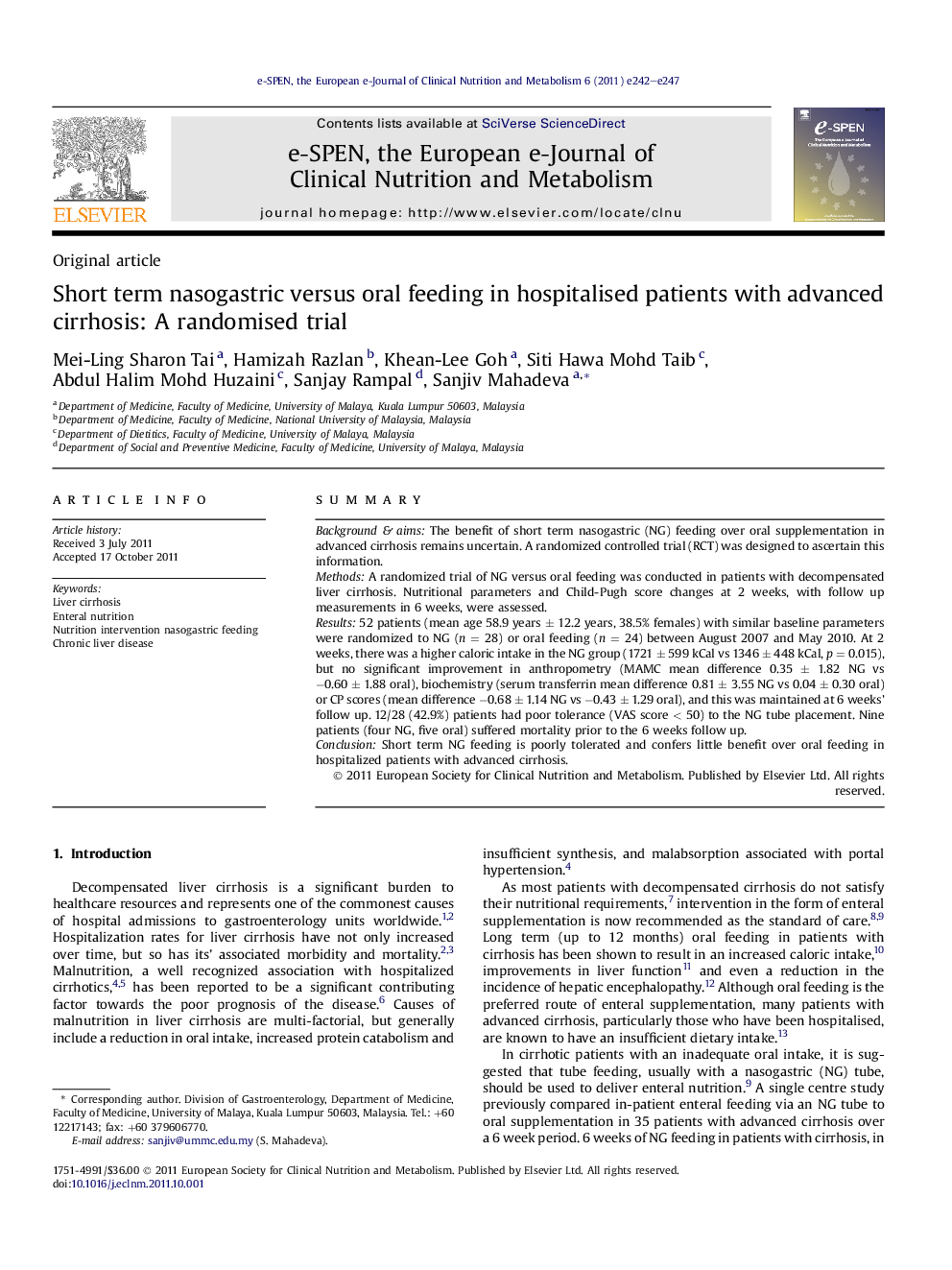| کد مقاله | کد نشریه | سال انتشار | مقاله انگلیسی | نسخه تمام متن |
|---|---|---|---|---|
| 2685336 | 1564751 | 2011 | 6 صفحه PDF | دانلود رایگان |
SummaryBackground & aimsThe benefit of short term nasogastric (NG) feeding over oral supplementation in advanced cirrhosis remains uncertain. A randomized controlled trial (RCT) was designed to ascertain this information.MethodsA randomized trial of NG versus oral feeding was conducted in patients with decompensated liver cirrhosis. Nutritional parameters and Child-Pugh score changes at 2 weeks, with follow up measurements in 6 weeks, were assessed.Results52 patients (mean age 58.9 years ± 12.2 years, 38.5% females) with similar baseline parameters were randomized to NG (n = 28) or oral feeding (n = 24) between August 2007 and May 2010. At 2 weeks, there was a higher caloric intake in the NG group (1721 ± 599 kCal vs 1346 ± 448 kCal, p = 0.015), but no significant improvement in anthropometry (MAMC mean difference 0.35 ± 1.82 NG vs −0.60 ± 1.88 oral), biochemistry (serum transferrin mean difference 0.81 ± 3.55 NG vs 0.04 ± 0.30 oral) or CP scores (mean difference −0.68 ± 1.14 NG vs −0.43 ± 1.29 oral), and this was maintained at 6 weeks’ follow up. 12/28 (42.9%) patients had poor tolerance (VAS score < 50) to the NG tube placement. Nine patients (four NG, five oral) suffered mortality prior to the 6 weeks follow up.ConclusionShort term NG feeding is poorly tolerated and confers little benefit over oral feeding in hospitalized patients with advanced cirrhosis.
Journal: e-SPEN, the European e-Journal of Clinical Nutrition and Metabolism - Volume 6, Issue 6, December 2011, Pages e242–e247
